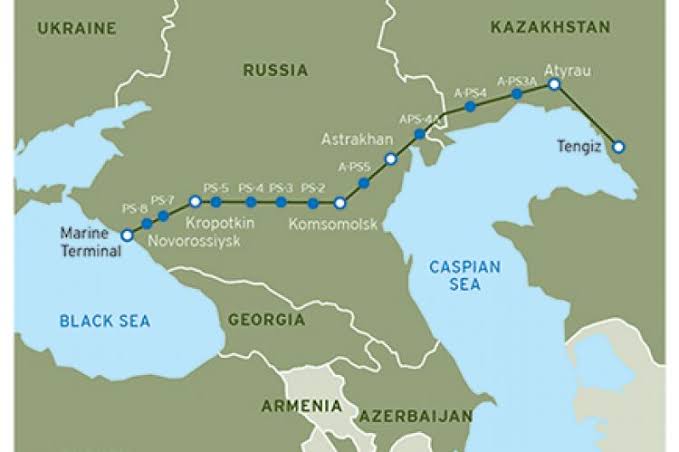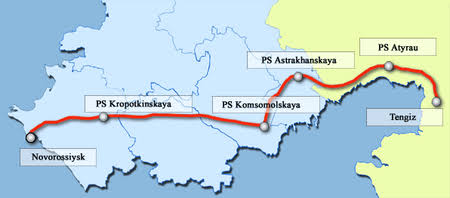The Caspian Pipeline Consortium (CPC) is a pipeline system that transports crude oil from the Caspian Sea region to the Black Sea. It was established in 1992 by oil companies from Russia, Kazakhstan, and other international partners.
The purpose of the CPC is to provide a safe and efficient transportation route for oil produced in the Caspian Sea region to reach international markets. The pipeline system starts in the oil fields of Western Kazakhstan and extends to the port of Novorossiysk on the Russian Black Sea coast.
The CPC pipeline system consists of a network of pipelines, pumping stations, and storage facilities. It has a total length of 1,511 kilometers and a capacity of 67 million tons of oil per year. The pipeline system is operated and managed by the CPC company, which is jointly owned by the participating oil companies.

The CPC has played a significant role in increasing the export capacity of Caspian Sea oil. It has provided a reliable and cost-effective transportation route, reducing the reliance on other routes such as the Baku-Tbilisi-Ceyhan pipeline. The pipeline system has also supported the development of the oil industry in the Caspian Sea region and contributed to the economic growth of the participating countries.
Overall, the Caspian Pipeline Consortium has been an important infrastructure project for the transportation of Caspian Sea oil. It has provided a vital link between the oil-producing region and international markets, contributing to the energy security and economic development of the participating countries.

Caspian Pipeline Consortium Members
The Caspian Pipeline Consortium (CPC) is a group of companies that own and operate the Caspian Pipeline System, which transports crude oil from the Caspian Sea to the Black Sea. The consortium is made up of the following members:
1. Chevron – Chevron Corporation is an American multinational energy corporation and is the largest shareholder in the CPC with a 15% stake.
2. Lukoil – Lukoil is a Russian multinational energy corporation and the second-largest shareholder in the CPC with a 12.5% stake.
3. Rosneft – Rosneft is a Russian state-owned oil company and holds a 7.5% stake in the CPC.
4. KazMunayGas – KazMunayGas is a national oil and gas company of Kazakhstan and holds a 19% stake in the CPC.
5. Shell – Royal Dutch Shell is a British-Dutch multinational oil and gas company and holds a 7.5% stake in the CPC.
6. Eni – Eni is an Italian multinational oil and gas company and holds a 2% stake in the CPC.
7. BG Group (now part of Royal Dutch Shell) – BG Group was a British multinational oil and gas company before its acquisition by Royal Dutch Shell. BG Group held a 2% stake in the CPC, which is now part of Shell’s stake.
8. BP – BP is a British multinational oil and gas company and holds a 2% stake in the CPC.
9. Kazakhstan Pipeline Ventures LLC – This company is a consortium of Kazakhstan’s state-owned oil and gas companies KazMunayGas and Oman Oil Company. It holds a combined 4.75% stake in the CPC.
10. Oryx Caspian Pipeline LLC – This company is a consortium of Sojitz Corporation and CNPC-Aktobemunaigas JSC. It holds a combined 1.75% stake in the CPC.
These companies work together as consortium members to operate and maintain the Caspian Pipeline System, ensuring the efficient transportation of crude oil from the Caspian Sea region to global markets.
